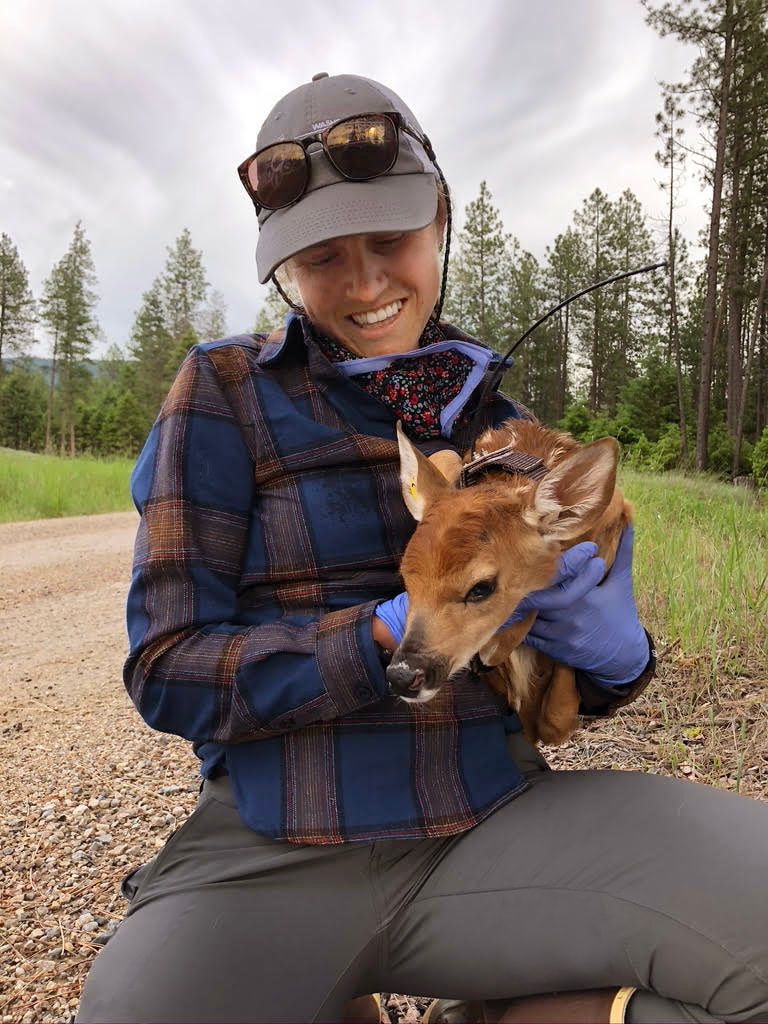|
bio photo: Clara Hoffman
|
Taylor Renee Ganz, Ph.D.I am an ecologist who studies how humans affect ecosystems, and my goal is to use science to inform conservation and management of wildlife and wild lands in the American West. I work as the Science Lead for The Nature Conservancy in Idaho where I provide science leadership and use science to support conservation efforts in Idaho and the greater region.
Previously, I studied how snowpack dynamics affect wildlife as a research scientist at the University of Washington to better understand climate change impacts. I've also contracted for the USGS, helping synthesize science around the impacts of recreation on ungulates to better integrate research findings into the NEPA process and public land management. I completed my Ph.D. in 2022 at the University of Washington under the mentorship of Dr. Laura Prugh, collaborating with the Washington Department of Fish and Wildlife on the Predator-Prey Project. My research evaluated how ungulates (mule deer, white-tailed deer and elk) respond to predators (bobcats, cougars, coyotes and wolves), forage dynamics, and landscape change driven by humans, including wildfire and timber harvest. For my master's, I attended the Yale School of the Environment (M.S. 2017), where I researched the impacts of air pollution on an alpine watershed in the Wind River Range, WY. I also hold degrees in Mechanical Engineering from the University of Southern California (B.S. 2010) and Physics from Lewis and Clark College (B.A. 2009). Before my academic career, I was a Senior Field Instructor at NOLS, wilderness ranger, horse-packer, teacher, and climbing guide. Outside of work, I like to spend long days in the mountains and especially enjoy trail running, skiing, and fly-fishing. |
